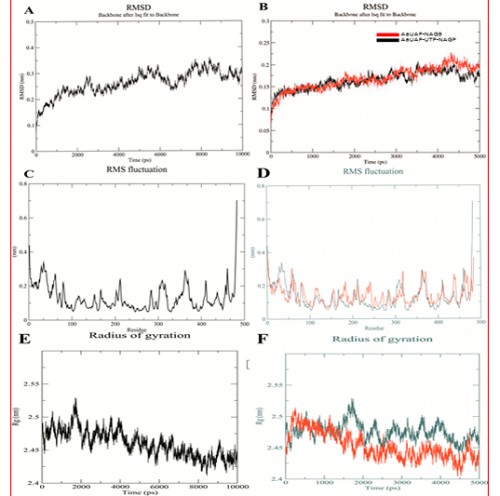UDP-N-Acetyl glucosamine pyrophosphorylase as novel target for controlling Aedes aegypti – molecular modeling, docking and simulation studies
Author(s): Bhagath Kumar P., Nagendra Pratap S., Kasi Viswanath K., Sampath Kumar R., And Dinakara Rao A.
Abstract: Aedes aegypti is a vector that transmits diseases like dengue fever, chikungunya, and yellow fever. It is distributed in all tropical and subtropical regions of the world. According to WHO reports, 40% of the world’s population is currently at risk for dengue fever. As vaccines are not available for such diseases, controlling mosquito population becomes necessary. Hence, this study aims at UDP-N-acetyl glucosamine pyrophosphorylase of Aedes aegypti (AaUAP), an essential enzyme for chitin metabolim in insects, as a drug target. Structure of AaUAP was predicted and validated using in-silico approach. Further, docking studies were performed using a set of 10 inhibitors out of which NAG9 was found to have good docking score, which was further supported by simulation studies. Hence, we propose that NAG9 can be considered as a potential hit in designing new inhibitors to control Aedes aegypti.
 Fig.: (A-F)
Fig.: (A-F) Molecular dynamic simulation results of AaUAP (A, C and E), AaUAP-NAGP-UTP and AaUAP-UDPGalNAc (B, D and F
How to cite this article:
Bhagath Kumar P., Nagendra Pratap S., Kasi Viswanath K., Sampath Kumar R., And Dinakara Rao A.. UDP-N-Acetyl glucosamine pyrophosphorylase as novel target for controlling Aedes aegypti – molecular modeling, docking and simulation studies. Int J Mosq Res 2014;1(4):17-24.



